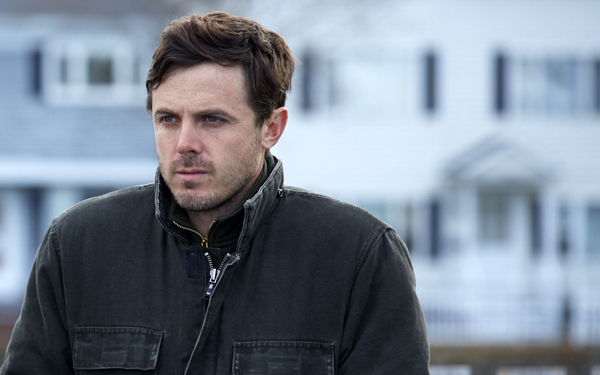Playwright and screenwriter/director Kenneth Lonergan returns to the big screen after a 16-year absence with Manchester by the Sea, a moody drama starring Casey Affleck as Lee Chandler, a man torn apart by tragedy who must return to his hometown in order to take care of his teenaged nephew.
It’s already racked up some major film awards, including being named the Best Film of the Year by the National Board of Review, and was recently nominated for six Academy Awards, including Best Picture, Best Directing and Best Original Screenplay nods for Lonergan.
Although Manchester by the Sea is only his third film, the native New Yorker is no stranger to the Oscars. His directorial debut You Can Count On Me, a poignant sibling drama with Laura Linney and Mark Ruffalo, earned him an Oscar nomination for Best Original Screenplay. Then two years later he was back for co-writing Martin Scorsese’s Gangs of New York.
Creative Screenwriting talked with Lonergan about what makes a good flashback, how to make a film assignment your own, and how to keep a drama rooted in realism.

Kenneth Lonergan on set of Manchester by the Sea.
Photo credit: Claire Folger, Courtesy of Amazon Studios and Roadside Attractions
The idea for Manchester By The Sea came from Matt Damon and John Krasinski. What was it about the story that inspired you to write it?
I liked the idea of someone who is carrying a burden that is too great for him, but wants to do the right thing by his family. I liked the idea about writing it in a truthful way.
Not everyone has had an experience as extreme as my main character, but those are things that you carry with you for the rest of your life rather than getting over it. It seemed like a rich field to explore.
When you’re given an outline or an idea like that, or an assignment, how do you make the story your own?
First you have to figure out what appeals to you personally, and from there you treat it as your own. But, of course, that has to be the arrangement between you and the person who comes to you with the idea and outline.
I’ve been given assignments where they want you to write certain portions of the script, or they come to you with an idea for a story and they want you to help out with restoring lines in a way in which they want you to write it.
In this case, it was a little unusual. This was more of a friendly arrangement. They were giving me an idea, not an outline. They had a lot of details in their version that I dispensed with, and they didn’t care about that – they were just interested in the main idea.
You have to follow your own interest because you can’t really do a good job if you follow someone else’s interest and don’t share it.

Michelle Williams as Randi Chandler in Manchester by the Sea.
Photo credit: Claire Folger, Courtesy of Amazon Studios and Roadside Attractions
The film hinges on a flashback structure. How integral was that to your storytelling process?
Very much so. The flashback structure unlocked the whole script for me. I had been working on it for months without much luck, and when I thought about rearranging the material as parallel lines, so to speak, I was off and running.
There are different trains of thoughts concerning the usage of flashbacks. In your opinion, when are they necessary to a story? What makes a good flashback scene?
I thin anything’s good when it feels organic. When there’s a close correlation between the emotional context of the story and the structure in which it unfolds, then you usually have something that works pretty well.
I don’t think there are any hard fast rules about it. Everything has to have the appearance of being alive, which is what we want to listen to, or watch or read. So if your flashbacks are clearly there to cram in information or not really connected to the material, then they’re not going to be successful.
But the flashbacks in Manchester by the Sea work because it’s about a character who is crippled by his memories, and memories of a specific time and place. His waking hour is dictated by the inner workings of his mind, so it’s very important for us to know what he’s thinking, and I think it’s very natural to see in flashbacks it once he journeys back home.
Whatever technique you’re using should be supported by the emotional context of the story. With a guy going home who can’t stand to be there, it would be pretty natural to see what he thinks about when he goes home.
If I didn’t have the flashbacks, I’d have a much harder time with the exposition. It’s not just about telling the audience the story, but showing them there are two stories, and so there’s quite a lot of content in the flashbacks. The actions he’s taking in the present are very much affected by what he’s thinking about from the past. How he decides to take care of his nephew is very much connected to how he was taken care of by his brother.

Casey Affleck and Keneth Lonergan on set of Manchester by the Sea.
Photo credit: Claire Folger, Courtesy of Amazon Studios and Roadside Attractions
The story obviously touches on grief and trauma in a naturalistic way, without veering into melodrama territory. As a writer, how do you keep it rooted in realism?
By asking tons of questions that actors sometimes would ask themselves after reading a script. What has happened before this? What happens next? Where are they coming from? Where do they work?
A lot of it is rooted in being as specific as possible. I know a lot of information about the characters that’s not really in the movie, but it’s in the background and comes through in little ways.
I think also it’s about just trying to believe in your story. And then when you believe in it, you can see the problems and what needs to be completed, and you make sure of the details that you need.
The relationship between Kyle Chandler’s character and Casey Affleck’s character – we don’t really get into it, but you get the feeling that the older brother is the senior partner in whatever business dealing they’re in. That’s because I wrote the scene knowing they have the relationship, so the behaviour is adjusted by the circumstances – just like in real life.
The more you do that, the more you build a tapestry that resembles a real community. And when you do that, it not only resembles a community, but a real situation. So therefore, hopefully, you avoid being melodramatic.
I also removed certain key scenes, that I had written but didn’t end up making it into the movie because I felt they would pile on too much sadness. They would have been going over the top.
For example, there was a shot of a funeral. But in the editing room, I realized we had had enough. We had already established a resonance about the trauma they had been through. You don’t need to be hit over the head with it. In real life, there would be a funeral and it would be that unbearable. But if I had added that funeral, I would have had to add more elements of life to balance it out.

Kyle Chandler as Joe Chandler and Casey Affleck as Lee Chandler in Manchester by the Sea.
Photo credit: Claire Folger, Courtesy of Amazon Studios and Roadside Attractions
There are also some humorous moments sprinkled throughout the movie, including a particular scene with EMS workers and a stretcher. Do those moments come in the writing process, or during filming?
Well, that actually happened. It was an accident that happened on set. The actors playing the EMS workers had trouble putting the stretcher into the ambulance, and it struck me as something very real, so I kept it.
I thought it was great that it happened because it was so awful. I didn’t find it terribly funny, but other people who might have a certain sense of humour might.
There were other moments in the movie that were funny. The actors had a good sense of humour.
I don’t think grief extinguishes our sense of humour for too long. So a film has to have a sense of humour. I think that otherwise it would dead, not very life like. Humour often comes from contrast, and there’s always going to be contrast when depicting someone else’s experience. Without humour, the film would just be dark.
The uncle-nephew relationship and dynamic is key to the film. Both are grieving, but Lee is restrained, while Patrick is more gregarious. Was that a conscious choice of yours while writing?
It was a partly conscious, partly instinctive choice. It seemed to me that it wouldn’t be a wise choice if Patrick was also as deeply troubled as Lee. He had a lot of trouble, but he has a pretty supportive family.
The conflict of the story is that Patrick has a good life there, and Lee can’t stand to be there. That’s the essential conflict of the story, and I don’t think it wouldn’t be much of a story if he also was a disturbed person.
Also, I think there would be too much misery for one movie to contain. It would be unnatural and feel maudlin. It felt good that he was different from Lee, and good for the story.

Casey Affleck as Lee Chandler and Lucas Hedges as Patrick in Manchester by the Sea.
Photo credit: Claire Folger, Courtesy of Amazon Studios and Roadside Attractions
You’re also a playwright. What are differences between writing in the two mediums, and is it difficult for you to go move between them?
No, I like going back and forth. They’re just different. Film seems shorter, and there is more available to you, such as locations, which you should take advantage of otherwise the film starts to feel claustrophobic.
The play is more limited in its technical side. You basically have stage, lights, costumes and actors. Maybe some sound design.
And movies have hundreds of components. In a play, you want to be more focused, while in a film I think you want to be more expansive. The challenge of the play is to try to be expansive with fewer tools. In a movie, the challenge is trying to find the story within a range of possibilities.
In a film, you can do almost do anything within any given scene. With a play, you don’t have those options.
Featured image: Casey Affleck as Lee Chandler in Manchester by the Sea. Photo credit: Claire Folger, Courtesy of Amazon Studios and Roadside Attractions
[addtoany]

